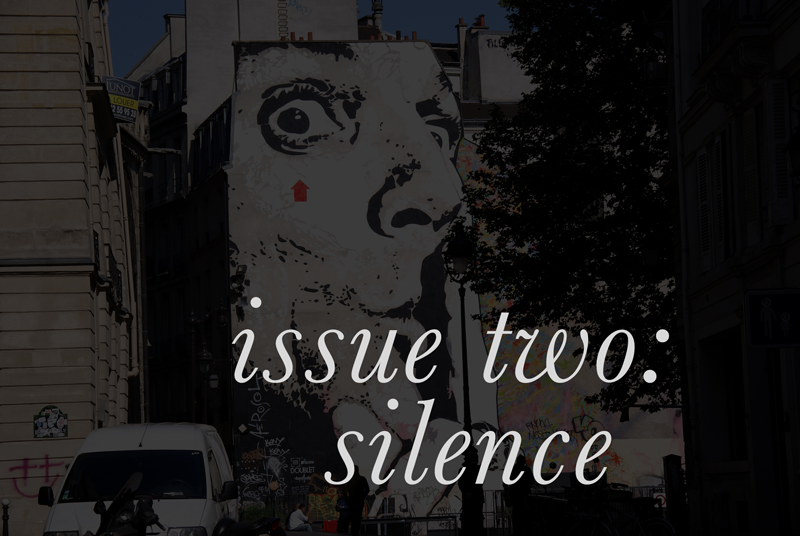In common parlance silence is shorthand for disempowerment, while speech is the basis of political agency. Nowhere is this more powerfully captured than in the famous essay of the French philosopher Jean-Paul Sartre ‘The Republic of Silence’ (1944), where he opens with the paradoxical remark: “We were never more free than during the German occupation.” His meaning is that because all political rights were taken away, beginning with right to speak, “every word took on the value of a declaration of principles.” When the right to speak was stifled by a tyrannically enforced silence, the political power of speech became starkly apparent. A simple gesture or word could amount to a heroic act of defiance.
What then can be said about the efficacy of political speech in an era of pervasive global noise? Is it still possible for speech to be a powerful gesture or is it lost in the cacophony of the contemporary world with its 24-hour news cycles and its now predominately young, urbanised, interconnected populations?
One answer – as many of the essays, poems, articles, short stories, interviews and art to be published over the coming weeks attest – is that silence can mean more than the absence of political agency. This is something that has long been clear from an artistic standpoint. Many of the greatest writers, artists and musicians reiterate that silence is not an absence, but an essential part of the way art imparts meaning.
The Demos team were, for this reason, excited to see other ways that silence is be inhabited, performed and explored on its own terms, both critically and creatively, in the works of our second edition.
Nowhere is this more apparent than in the work of Udeni Appuhamilage that will open our second edition. Based at ANU, Appuhamilage is a Fulbright Scholar and clinical psychologist who worked with trauma victims during and after the Sri Lankan Civil War. In addition to her interview with Demos Subeditor Aditi Razdan, she has penned a piece that directly addresses the power of silence: “in my own (clinical and research) work in Sri Lanka […], I found silence to be one of the most powerful and constructive ways of communicating.”
This sentiment is echoed in the ‘The Clamour of Political Beings’ by Demos Subeditor Duncan Stuart. Like Appuhamilage, Stuart argues that the identification of political agency with voice, and silence with passivity has problematic consequences. He traces the strands of this preference for speech through the history of political philosophy, arguing it is in part responsible for lack of attention that has been given to the agency of plants and animals.
This problem is increasingly pressing as this edition goes to print during the global climate summit in Paris. While the Paris Conference is an event of political speech par excellence, with heads of states participating in a highly circumscribed and bureaucratic form of political dialogue, it is also an occasion for worldwide grassroots activism. As heads of states continue to think in terms of a global economy that does not account for ‘externalities,’ or the effect on the natural world, popular demonstrations defend the value of that which cannot represent itself.
This emerges powerfully from the experiences of environmentalist Hannah Patchett, in her interview with Demos Editor Odette Shenfield. Patchett spent a month living alone in a treehouse to protest the logging of the Toolangi State Forest. Her red treehouse become an icon of humble resistance to environmental degradation. Through this silent action, she demonstrated how silence itself can be political.
Yet, as other contributors remind us, silence can rightfully inhabit its more conventional meaning, especially when stifling inaction and collective amnesia are features of our national politics with regard to Australia’s first peoples. Amelia Noble directly addresses this question in her article ‘Is Patriotism Something to Strive For?’ by discussing the contentious history of January 26th: both ‘Australia Day’ and the day of Australia’s colonial invasion. Noble forces us to likewise to pose the question: “Is our ‘national day’ emblematic of widespread inattention to Aboriginal and Torres Strait Islander history?” While the answer may not be comfortable for a national founded on colonial dispossession, it cannot be passed over in silence.
Likewise, silence has subtle cultural dimensions that are explored in Codie Bell’s article. As Bell argues, the dominance of male voices in popular culture has disseminated a warped view of what it means to have relationships as a girl. In looking to cultural narratives for guidance, Bell finds only silence.
Against the backdrop of these critical engagements with silence, we are also thrilled by the opportunity to publish a selection of poetry from some of the most innovative and moving poets from Canberra and beyond: Raphael Kabo, Ian McBryde, Rachel Kirk, Andrew Galan, Penny Cummins, Leonard Krasny, Ali Smith, Julien Tempone and Gabriela Falzon.
These poems explore silence not merely in content, but also in form. In terms of form, take Kabo’s poem – at once cerebral and visceral – which concretely manifest an aphasia induced by the wish of man “for people to die tonight in places he / Knows only by the strangeness of their / Names and by their being filled with / People expecting not to die.”
Falzon’s poem, on the other hand, treats silence in its content with a trenchant, honest and stirring statement of identification with feminism; a declaration that she will not be silenced even if she has as of yet only “won the right to be degraded.”
The pieces discussed here are only a small sample of the work we are privileged to publish in this edition of Demos. Together they are a testament to the many valences of silence. Far from being a monolithic absence, silence is a site of immense complexity and political relevance. It is our hope that the pieces featured here will provoke a deeper engagement with both silence and the pertinent issues explored.

